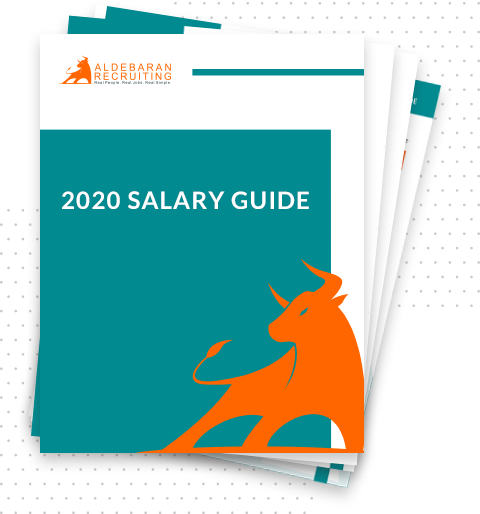Today’s blog is about how to avoid making a bad hire for your startup. The truth is that the majority of the information here could be used for hiring for any company, but we will focus on some specifics for a startup.
A COSTLY MISTAKE
Making a wrong hire or a bad hire for your team or your organization can be one of the most costly mistakes that you make. Not only is it costly from a monetary perspective, but it’s also very costly from a time perspective, which of course translate into dollars. Doing everything you can to avoid hiring the wrong person or making a bad hire is going to be extremely critical if you’re interested in truly growing. Especially as the candidate market becomes tighter and tighter, it’s going to be critical that you make the right decisions and hire the right people.
TIMING IS EVERYTHING
The number one thing that you want to make sure you don’t do, which will help to avoid hiring the wrong people, is to ever rush into making a hire. Now, this needs to be balanced with ensuring that you move as fast as humanly possible with candidates that you do like as the market is very tight. But you need to make sure that you balance moving quickly with also doing your due diligence and ensuring you hire the right person. So always be sure you’re focusing on hiring the right person, not focused on some sort of timeline or deadline. Sometimes clients make the mistake of knowing they need to have someone in the seat by a certain time and will sometimes make a bad hire because they were rushing to meet a deadline or a project timeline. Make sure you have contingencies in place in case you don’t meet your hiring deadline because your focus should be on hiring the right person.
DON’T JUDGE A BOOK BY ITS COVER
Many startups want to hire people with startup experience, so one mistake is to sometimes look at someone’s resume and see that they come across as “jumpy” and then to avoid talking to that person. If you’re in the startup space it’s important to remember that many startup companies do not have longevity, and therefore you want to make sure you’re not reading a book by its cover too much. Many candidates who move from startup to startup have very reasonable and legitimate stories for having shorter stints at companies, and you owe it to yourself to learn whether they look like they could be a potential good candidate for you. What you don’t want to do is miss out on talking to someone who could be good because you judged too much on their resume that they’re jumpy. This will have you miss out on people, and that’s something that you can’t afford to do in a tight market.
GET CLEAR ABOUT WHAT YOU NEED
Make sure that your role is well defined. You want to make sure that you have an organizational and accountability structure for your team and your company, and a clearly defined roadmap for what the growth, responsibilities and accountabilities are. Only with a clearly defined roadmap of accountabilities and responsibilities can you be sure you’re interviewing for the right person. Many times hiring the wrong person comes when you think you need X, but you really need Y, and you hire someone for X only to later find out that you really needed Y. This is no fault of the candidate. This is your fault for not knowing what you needed and then not hiring and interviewing consistent with what you needed. So having clarity about what you need and the type of person that you need is extremely critical. This is a mistake that a lot of startups make as they don’t do the initial legwork and the initial mapping to know where they’re going and what they need to get to where they’re going, so they make a wrong hire.
INTERVIEWING AS AN ART
Another mistake many startups make is with what tends to be younger staff and younger managers. Younger managers are not trained well on how to interview and how to hire for their teams, and are left to their own devices. Interviewing and growing a team really is an art, and in order to interview correctly and hire the right people it makes a tremendous difference to have some actual interview coaching and interview training. This can be done by reading books or having consultants come in and work with your hiring managers. But an organized and efficient interview process is critical for hiring the right people. It’s very easy to get tricked or to not ask the right questions and think you’re making a good hire when in fact you’re not. Your interview process needs to be honed in a way to ensure that you’re hiring the right people.
TESTING FOR SKILLS
You want to also find out a way to somehow test people’s technical or hard skills, whatever that might be. This tends to be easier when it comes to technical roles, but it’s very easily done with marketing or sales roles as well too. The point is to make sure that you’re doing your due diligence on someone’s hard skills, not just taking their word that they have the experience or the hard skills. Taking people’s word on being able to do something is another number one reason companies will make a bad hire. Figure out a way to test, figure out a way to get a work example, whatever that might be.
CONCLUSION
At the end of the day if you take a few of these tips and implement them you can go a long way to avoid making a bad hire or hiring the wrong person for your company. It’s critical that you take these steps because if you’re truly looking to compete at a high level in your industry then you need to be able to make a cut above your competition and hire the right people.
Best of luck!
Need more tips on improving your hiring process? Go here: https://bit.ly/2CjHtWP
Want to consider us as your recruiter? We would love to work with you! Contact us for an exploratory call!



